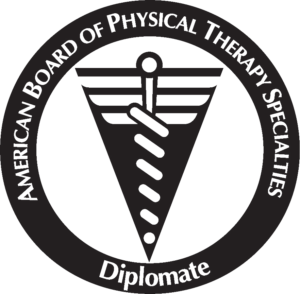Nutrition plays such an important role in our pregnancies and post-partum periods. Breastfeeding requires time…
Pelvic Floor Specialists: Our Role in Sexual Health
Having worked as a pelvic floor specialist in Kansas City for the last 7 years, I have helped a lot of patients who experience sexual dysfunction. This “hush” topic may scare off a lot of people, and quite frankly it took me awhile to be comfortable discussing with clients their concerns about sex, intimacy, decreased desire, different positions and general questions about sexual health. As a pelvic floor specialist, clients are referred to us through their doctor, chiropractor, psychologist, or are self-referred after many frustrating years of dysfunction without any help. Pelvic floor physical therapy examines the structures involved in healthy intercourse and addresses the problems found through exercise, manual therapy, neuro-muscular retraining using surface EMG (electromyography) and A LOT of patient education. There are many symptoms that fall under the umbrella of sexual dysfunction. I would like to talk about the ones that we most often see and are very capable of helping through pelvic floor physical therapy.
Both men and women can experience a general lack of sexual interest and the numbers probably won’t surprise you that 32% of women aged 18-59 complain of lack of interest while just 15% of men the same age experience this concern. Lauman, EO, et al. JAMA. 1999;281-537-544 Arousal Disorder can be due to medical factors that create poor circulation, poor lymphatic flow, hormone imbalance, tissue restrictions or muscle weakness or spasm. They can also be greatly influenced by psychological factors. A pelvic floor specialist is trained to take a very thorough history and recognize that this type of disorder needs to be treated in a multi-disciplinary approach alongside a doctor, psychologist and/or psychiatrist and possible other alternative therapy providers. Physical Therapy for Sexual Arousal Disorder will examine the muscles of the pelvis for strength and endurance and evaluate tissue elasticity for possible restrictions or circulatory restrictions, and design a treatment plan using exercise, and manual therapy to restore normal function to these structures.
In their study on sexual dysfunction in the United States, Lauman, et al. found the prevalence of orgasmic dysfunction to be 28% of women aged 18-59 and just 8% of men of the same age. It is clear these concerns affect women more frequently than men, yet sales of Viagra are staggering while women are still waiting for the magic pill to cure our sexual ailments. I digress… At any rate, in order to have a good orgasm, you have to have strong, healthy pelvic floor muscles and a clear head. Huh? You heard me, the more anxiety and worrisome thoughts that are rolling around up there during sex, the harder it is to achieve orgasm. No surprise then that conflict in a relationship is highly correlated with poor orgasm or none at all (Lauman et al.) Once again, a good pelvic floor specialist knows we can’t fix the relationship, but should have a list of practitioners who can help in this regard. We can work on getting the muscles and tissues of the pelvis strong and healthy. Without muscle and tissue health, the pelvis becomes congested due to poor blood flow, or poor lymphatic flow, or both. This leads to poor performance, no orgasm and anxiety about it all, creating a spiral downward to dysfunction. Stopping that snowball effect is the first step toward improving sexual health. In my experience as a pelvic floor specialist treating orgasmic dysfunction, clients are most improved by integrating therapy with a certified sex therapist or psychologist who has experience with this.
For women, pain with sexual intercourse is seen in roughly 21% of us from age 18-59, according to Lauman et al. Another study by Glatt et al. found 60% of women surveyed experienced pain with intercourse at some time in their lives. Men can also experience pain with intercourse, although the rates are much less. There are many reasons pain can occur during sex. These can stem from situations where a women has been abused either sexually or physically, even verbally. Women often find after childbirth they may have pain due to tissue restrictions or scarring. Often it is due to postures or habits of holding tension in the muscles of the pelvis. There are a number of disorders that can cause pain with intercourse, some relating to the tissue sensitivity in the vulvo-vaginal area. Often men and women may have pain with intercourse after cancer treatment. As specialty physical therapists, we will help identify the causes of your pain, evaluate the musculoskeletal structures of the spine, hips, pelvis and abdominal wall and determine a plan of care to help you reduce pain and regain pelvic health. Sex should not be painful. You are not imagining it. There are many people who also have symptoms like yours. I have treated them successfully for the past 11 years.
Pelvic health is so important in maintaining interest in sex, desire and arousal, good orgasm and happy healthy intimacy. I realize it isn’t easy to discuss with anyone. Why is this so important? Why all the fuss? The benefits of sex are tremendous! It can reduce stress, and who doesn’t need a little help there? It can enhance mood and improve self-esteem. It helps maintain regular blood flow through the pelvic arteries, which can help tissue health and prevent thinning. Sex can also improve pelvic floor muscle health as well. And guess what!? Having sex twice per week adds two years to your life expectancy. And wait (ladies you may want to keep this to yourselves) but gentlemen you will be happy to learn that sex daily could add 8 years to your life! (Berman/Berman, For Women Only pg 194)
–Sarah Dominguez, PT, MSPT, CLT
Both men and women can experience a general lack of sexual interest and the numbers probably won’t surprise you that 32% of women aged 18-59 complain of lack of interest while just 15% of men the same age experience this concern. Lauman, EO, et al. JAMA. 1999;281-537-544 Arousal Disorder can be due to medical factors that create poor circulation, poor lymphatic flow, hormone imbalance, tissue restrictions or muscle weakness or spasm. They can also be greatly influenced by psychological factors. A pelvic floor specialist is trained to take a very thorough history and recognize that this type of disorder needs to be treated in a multi-disciplinary approach alongside a doctor, psychologist and/or psychiatrist and possible other alternative therapy providers. Physical Therapy for Sexual Arousal Disorder will examine the muscles of the pelvis for strength and endurance and evaluate tissue elasticity for possible restrictions or circulatory restrictions, and design a treatment plan using exercise, and manual therapy to restore normal function to these structures.
In their study on sexual dysfunction in the United States, Lauman, et al. found the prevalence of orgasmic dysfunction to be 28% of women aged 18-59 and just 8% of men of the same age. It is clear these concerns affect women more frequently than men, yet sales of Viagra are staggering while women are still waiting for the magic pill to cure our sexual ailments. I digress… At any rate, in order to have a good orgasm, you have to have strong, healthy pelvic floor muscles and a clear head. Huh? You heard me, the more anxiety and worrisome thoughts that are rolling around up there during sex, the harder it is to achieve orgasm. No surprise then that conflict in a relationship is highly correlated with poor orgasm or none at all (Lauman et al.) Once again, a good pelvic floor specialist knows we can’t fix the relationship, but should have a list of practitioners who can help in this regard. We can work on getting the muscles and tissues of the pelvis strong and healthy. Without muscle and tissue health, the pelvis becomes congested due to poor blood flow, or poor lymphatic flow, or both. This leads to poor performance, no orgasm and anxiety about it all, creating a spiral downward to dysfunction. Stopping that snowball effect is the first step toward improving sexual health. In my experience as a pelvic floor specialist treating orgasmic dysfunction, clients are most improved by integrating therapy with a certified sex therapist or psychologist who has experience with this.
For women, pain with sexual intercourse is seen in roughly 21% of us from age 18-59, according to Lauman et al. Another study by Glatt et al. found 60% of women surveyed experienced pain with intercourse at some time in their lives. Men can also experience pain with intercourse, although the rates are much less. There are many reasons pain can occur during sex. These can stem from situations where a women has been abused either sexually or physically, even verbally. Women often find after childbirth they may have pain due to tissue restrictions or scarring. Often it is due to postures or habits of holding tension in the muscles of the pelvis. There are a number of disorders that can cause pain with intercourse, some relating to the tissue sensitivity in the vulvo-vaginal area. Often men and women may have pain with intercourse after cancer treatment. As specialty physical therapists, we will help identify the causes of your pain, evaluate the musculoskeletal structures of the spine, hips, pelvis and abdominal wall and determine a plan of care to help you reduce pain and regain pelvic health. Sex should not be painful. You are not imagining it. There are many people who also have symptoms like yours. I have treated them successfully for the past 11 years.
Pelvic health is so important in maintaining interest in sex, desire and arousal, good orgasm and happy healthy intimacy. I realize it isn’t easy to discuss with anyone. Why is this so important? Why all the fuss? The benefits of sex are tremendous! It can reduce stress, and who doesn’t need a little help there? It can enhance mood and improve self-esteem. It helps maintain regular blood flow through the pelvic arteries, which can help tissue health and prevent thinning. Sex can also improve pelvic floor muscle health as well. And guess what!? Having sex twice per week adds two years to your life expectancy. And wait (ladies you may want to keep this to yourselves) but gentlemen you will be happy to learn that sex daily could add 8 years to your life! (Berman/Berman, For Women Only pg 194)
–Sarah Dominguez, PT, MSPT, CLT
This blog is here for your help. It is the opinion of a Licensed Physical Therapist. If you experience the symptoms addressed you should seek the help of a medical professional who can diagnose and develop a treatment plan that is individualized for you. If you enjoyed this blog, check out our website at foundationalconcepts.net for more blog entries and to learn more about our specialty PT practice, Foundational Concepts. Follow us on Twitter @SarahpelvicPT or @Jenn_pelvic_PT and like us on Facebook at Foundational Concepts for updates.





This Post Has 0 Comments